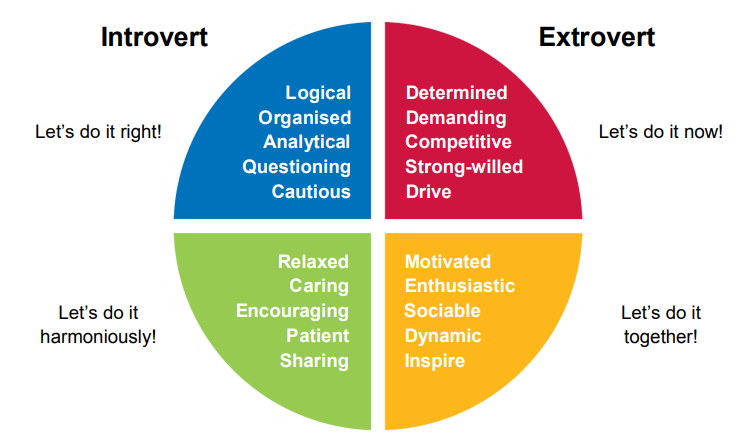
Personality tests aren’t just for the young and inexperienced. They’re perfect for people who are diving into their second act wanting to learn more about their innate skills, traits and desires.
Who are you? That’s the question philosophists and social scientists have been pondering for centuries.
As far back as 460 BC, Hippocrates suggested that humans had a “persona” comprised of four distinct temperaments. By the early 1900s, psychologists were knee-deep in personality theory. Sigmund Freud had suggested that personality was a lot more complex than originally thought, driven by our innate needs and desires, and Swiss psychologist Carl Jung proposed there were four main preferences that influenced our personalities. In 1919, the first modern personality test was introduced. But the Woodworth Personal Data Sheet, designed to screen out U.S. army recruits who might be susceptible to shell shock, would certainly not be the last assessment of its kind.
There are now dozens of tests you can take—many in the comfort of your own home—to gain a better understanding of how you’re wired. Depending on which you choose, these assessments can help you maximize your core competencies and traits, build your emotional intelligence, find work that best suits you, and even improve your relationships. Some of them can also benefit teams seeking to build their collaborative skills.
Through the years I’ve taken my share of personality quizzes, and the results have been fairly consistent. Apparently, I’m creative, communicative, enthusiastic and diplomatic, but perhaps a little too sensitive and with perfectionist tendencies (I know). In the workplace, I’m hardworking, organized and strategic, and I love to lead (yeah, ENFJ in the house). In relationships, I apparently crave words of affirmation (as Chaka sang, “tell me something good” and I’m putty in your hands).
But lately I’ve been wondering, do we get different results from these tests at different points in our lives? Do our skills, tendencies and preferences change with age? Has any of my unsavory traits been amplified or tempered? Have I evolved as a human being? These are questions many of us find ourselves asking on the other side of 40.
While some tests such as Myers-Briggs reveal basic preferences that likely will not change over time, others (including emotional intelligence tests) may track personal growth. According to research cited in Psychology Today, between the ages of 20 and 50 certain personality characteristics—include agreeableness, consciousness and EQ—are likelier to increase than decrease with age. But how, and in which direction, people evolve varies wildly, depending on factors such as life experience, education and financial stability.
The bottom line, even if our essential personalities cannot change, we can alter our mindset, behaviors and reactions to things at any point in our lives.
I suspect I’m becoming more introspective and open minded with age. I’m definitely gaining more self-acceptance—and a sense of humor about my shortcomings. And I’m embracing skills that I may have pushed to the side while pursuing other goals—such as raising my kids. Like many of my friends and colleagues, I’m determined to make the most of my second act, and being armed with information feels like a good place to start.
So, whether you’re just dipping your toes in to the waters of self awareness or you want to dig deeper into your psyche for continued personal growth, here are some of the top personality tests, what they’re all about, and where you can take them.
Discover Your Personality Type: Myers-Briggs
Let’s start with the biggie. Since 1962, the Myers-Briggs Type Indicator (MBTI) has been the gold standard of personality tests that many companies use to assemble teams and even hire people. It’s taken by about 2 million people every year. The test applies Jung’s theory of psychological types, which asserts that the seemingly random variation in human behavior is actually quite orderly and consistent, due to basic differences in the ways individuals prefer to use their perception and judgment. For instance, do you prefer to focus on the outer world or on your own inner world? When making decisions, do you prefer to first use logic or to consider the people and special circumstances? The test requires you to answer a series of questions that you must answer honestly, and your responses in four main categories are expressed as a four-letter code that tells you which of the 16 personality types you are. You’ll also learn how your type influences the various areas of your life and how you can improve your relationships with other types. I’ve taken this test three times since age 30 and I’ve always been an ENFJ, which leads me to believe the test is pretty consistent. Take a free version here.
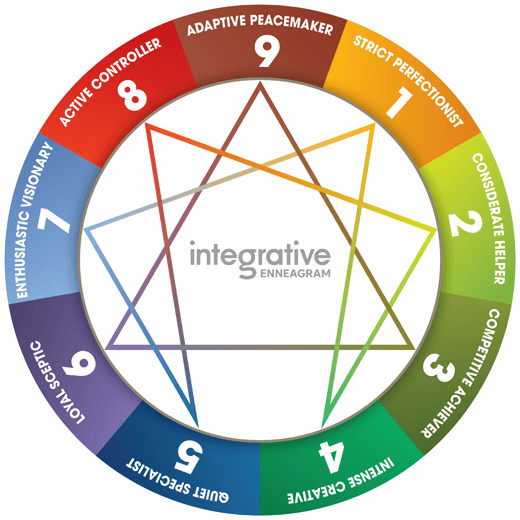
Discover Your Dominant Trait: Enneagram
The roots of the Enneagram’s nine-pointed symbol has been attributed to everything from ancient Babylon to Jewish Kabbalah, Christian mysticism and Sufism. However, Enneagram Personality Theory was popularized by spiritual teacher Georg Ivanovich Gurdjieff in the 1930s, and arrived on American shores in the 1960s. The name Enneagram comes from the Greek words ennea, which means nine, and gamma, which means something that’s drawn or written. Enneagram Theory asserts that every person falls into one of nine dominant personality types that’s defined by a particular core belief about how the world works. This belief drives your deepest motivations and fears, and fundamentally shapes your perspective. Understanding your Enneagram type and how it colors your perceptions can help you to better understand yourself and others, and to approach situations more effectively. Companies often use this test to improve team dynamics and conflict resolution. The Personality Lab has one of the best versions of the test, which takes about 15 minutes to complete and costs about $20. You can also purchase this book to learn more about your type.
 Discover Your Superpowers: CliftonStrengths
Discover Your Superpowers: CliftonStrengths
Already used by more than a quarter-million people, Gallup’s CliftonStrengths Assessment is based on the principles of positive psychology and the notion that to achieve success, happiness and fulfillment, people need to maximize their strengths, as opposed to fixing their weaknesses. The test uses a series of questions to help pinpoint your top five skills (or more, depending on which version of the test you take) out of 34 unique ones in four categories. Being aware of these strengths can hep you understand your innate skills and talents—those that come so naturally to you that you may not even recognize them as special—and apply them to your career and personal life. As someone who’s taken this test a couple times, I have to say it’s pretty accurate. And the coolest thing is that the odds of having the same top five strengths, in the same order, as another human being are 1 in 33 million! You can take the basic test for about $20 here, or purchase this book that includes an access code to take the test online. (There are also different versions for managers, students and educators.) If you want to learn more, listen to my conversation with psychologist Lee Koles about how you can tap into your career superpowers using CliftonStrengths.
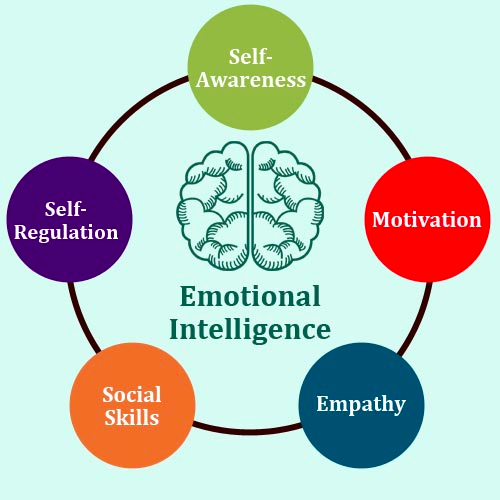
Discover Your Emotional Intelligence: EQ
Emotional Intelligence (EQ) measures your capacity to be aware of, control and express your emotions, as well as handle interpersonal relationships judiciously and empathetically. Research conducted over the past few decades has suggested that EQ is key to both personal and professional success, and may be the strongest predictor of workplace performance. There are many EQ appraisals, including Dr. Travis Bradberry and Dr. Jean Greaves’ best-selling Emotional Intelligence 2.0, and most of them break the test into several categories, including self-awareness, self-management, social awareness and relationship management. The great thing about EQ is that, unlike other types of personality assessments, it can be strengthened at any age; in fact, research shows that EQ doesn’t peak in most people until age 60. There are various EQ tests available for free online. I took the one by Psychology Today, which takes about 30 minutes to complete and costs about $10 for a full report. (Other exams are distributed by The Institute for Health and Human Potential and Mind Tools.) For a deeper dive into EQ and its importance, read Daniel Goleman’s 2005 book, Emotional Intelligence: Why It Can Matter More Than IQ.
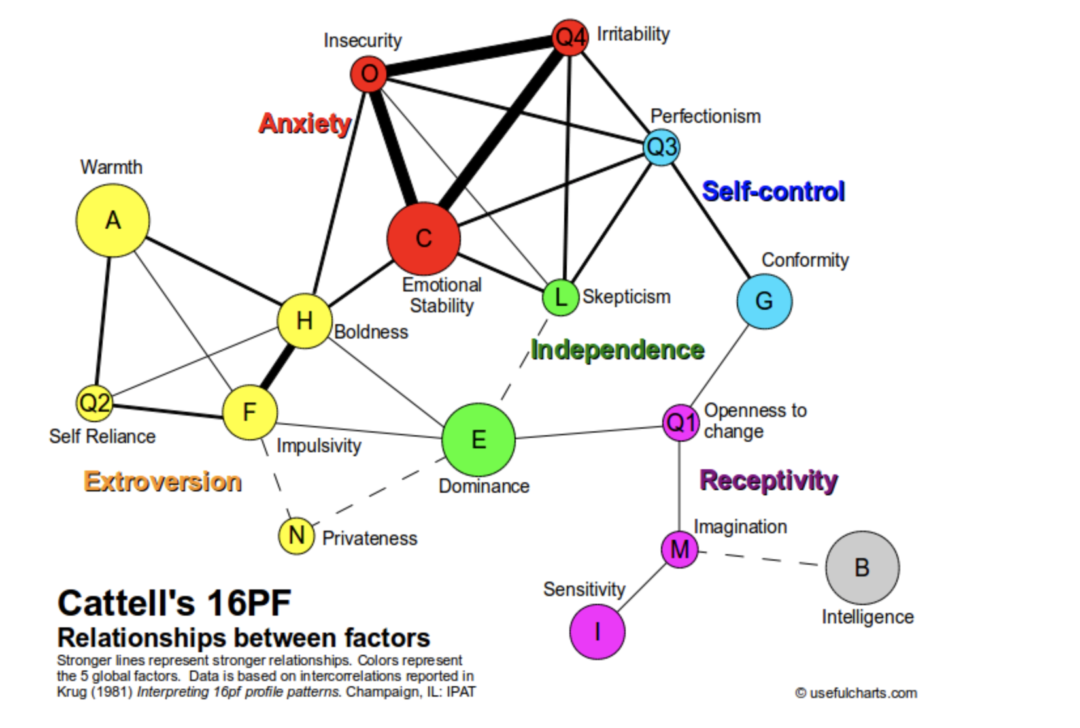
Discover Your Variables: Cattell’s 16
First published by British psychologist Raymond Cattell, whose work started in the 1920s, the 16 Personality Factor Questionnaire (16PF) is based on Allport’s Trait Theory of Personality, which suggested that our behaviors and propensities are influenced by our childhood experiences, current environment and the interaction between them. Using a statistical method called factor analysis, Cattell found that there were 16 primary traits underlying human personality: warmth, reasoning, emotional stability, dominance, liveliness, rule-consciousness, social boldness, sensitivity, vigilance, abstractedness, privateness, apprehension, openness to change, self-reliance, perfectionism and tension. The 16PF measures these traits, which Cattell later found aligned with the Big Five personality theory (below). It will take you about 15 minutes to take the free online test, which consists of 164 statements you must agree or disagree with.
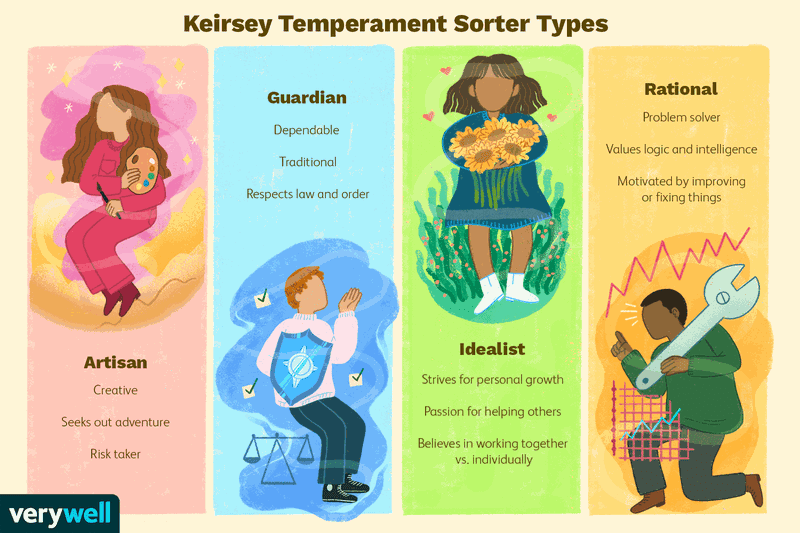
Discover Your Temperament: Keirsey Test
The Keirsey Temperament Sorter is a personality assessment created by psychologist David Keirsey and introduced to the public in 1978. The questionnaire divides people into four types: Artisan, Guardian, Idealist and Rational. Each of these groups is further sorted into four character types, resulting in 16 possible temperaments, each with different strengths and weaknesses, skills and talents. The four-letter codes attributed to the 16 types are similar to those generated by the Myers-Briggs Type Indicator (MBTI). However, while MBTI focuses on interior thoughts and feelings, Keirsey is interested in external behavior that can be observed—especially the dichotomy between intuition and sensing. Find our your primary type by taking this free 15-minute test; more detailed reports are available at an additional cost.
Discover Your Key Traits: The Big Five
More than 4 million people have taken the Big Five assessment, which aims to give you a better understanding of yourself and your relationships. The test shows you how you differ from other people in five categories: Openness, which reveals your level of curiosity about the world and your willingness to try new things; Extraversion, which indicates your comfort level in meeting new people, making friends and enjoying social events; Agreeableness, which demonstrates how well you treat others and manage conflict; and Neuroticism, which reflects your emotional stability and ability to experience negative emotions such as anger, fear, anxiety, guilt and shame. I found this personality assessment to be one the most interesting I’ve taken, because it focused on very specific tendencies, but I can see how more introverted people might find it skewed. Take a free version of the 15-minute test here.
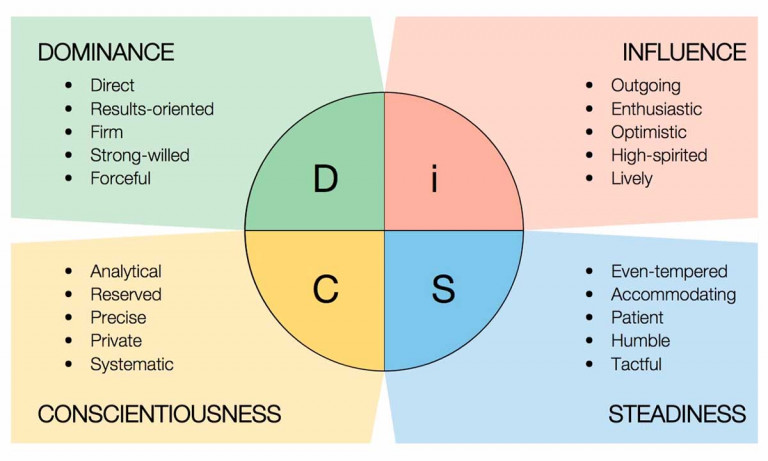
Discover Your Workplace Behavior: DISC
Based on the 1928 DISC emotional and behavioral theory of psychologist William Moulton Marston, this assessment can help you determine your personality at work. An acronym, it measures four major personality traits: Drive (taking charge and making key decisions), Influence (engaging others to work together), Support (assisting others to achieve group goals) and Clarity (working independently to produce correct results). While the test isn’t used as commonly in the workplace as CliftonStrengths and others, it is a quick and easy way to get a glimpse into your career and interpersonal strengths, and to pinpoint the skills you may want to work on. The test consists of 54 questions and takes about 5 minutes to complete; take a free version here.
 Discover Your Personal Dimensions: HEXACO
Discover Your Personal Dimensions: HEXACO
The HEXACO Personality Inventory was developed in 2000 by Canadian psychology professors Kibeom Lee and Michael C. Ashton to assess some of the personality dimensions and theoretical interpretations that had been outlined in earlier studies. The model measures strength in six major categories: Honesty-Humility, Emotionality, Extraversion, Agreeableness, Conscientiousness and Openness. The assessment is comprised of 200 questions for the full-length assessment or 100 questions for the half-length assessment. I took this one and found it slightly out of line with all the other aforementioned tests. But the questions were fun to answer and ponder. To take the test for free, visit the HEXACO website.
Discover Your Love Lingo: 5 Languages
OK, moving on to more personal matters. 30 years ago this year, The 5 Love Languages by Dr. Gary Chapman introduced the concept that everyone has a preferred way of expressing and receiving love that falls into one of five categories or “languages.” The idea is that if you learn to understand both your own love language and your partner’s, you can strengthen your communication and ultimately your relationship. The languages are Gifts (you show and feel love through presents, tokens both big and small), Acts of Service (you demonstrate your affection with thoughtful gestures, such as cooking a meal, cleaning the house, or filling the car with gas, and you feel loved when others do the same for you), Words of Affirmation (you most appreciate giving and receiving love through words, including compliments, praise and other verbal expressions of support or admiration), Quality Time (you feel most loved while spending meaningful, focused time with your partner) and Physical Touch (you prefer to express and receive affection through physical contact like hugging, kissing, holding hands, cuddling and having sex). This test is really spot-on and enlightening, and I love that there are now various spinoffs, including The 5 Love Languages of Children to help strengthen your bonds with your kids. Take the free five-minute Love Languages relationship quiz here.
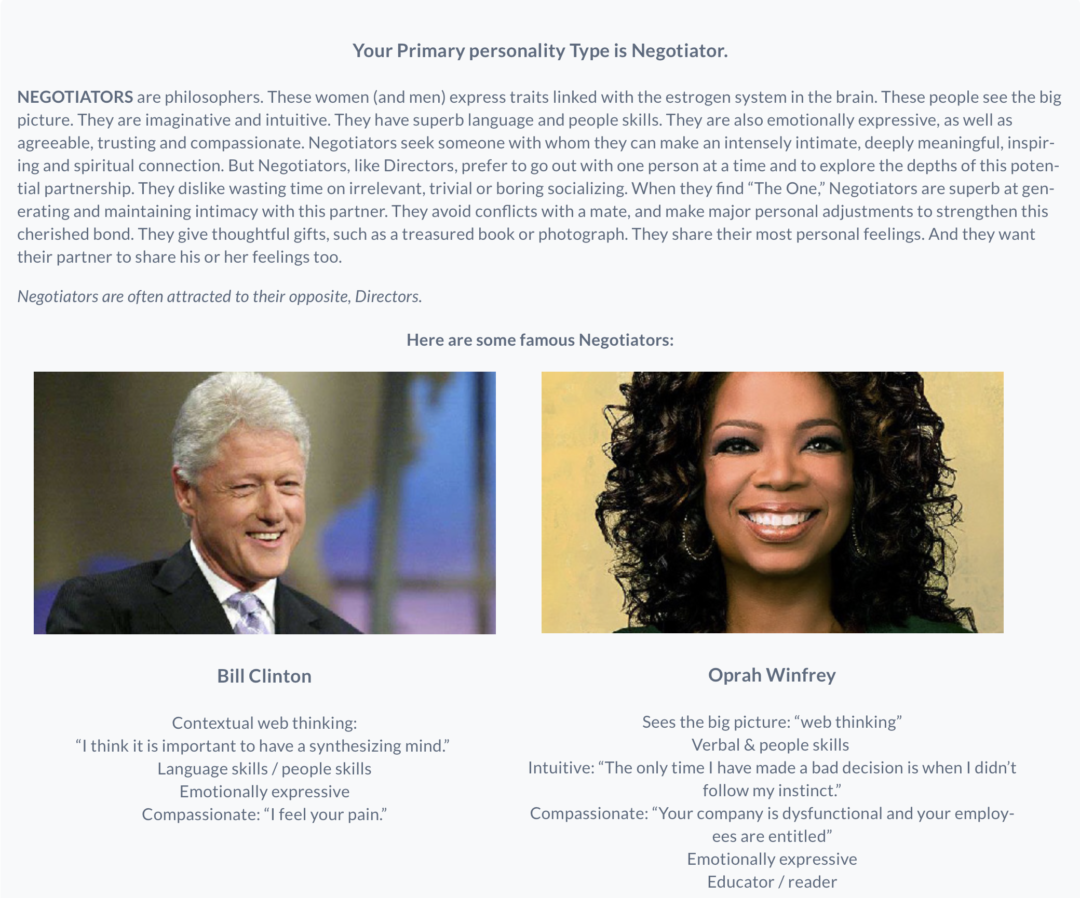
Discover Your Desires: Anatomy Of Love
Anthropologist Helen Fisher has been studying the origins of love for the past few decades, even going so far as using brain scans to show which parts of the brain are engaged when someone is “in love”or attached to their partner. She’s created compatibility tests for dating sites, and her Anatomy of Love assessment has been taken by more 14 million people in 40 countries. The main principle behind the test is that everyone is dominated by one of four brain systems that are influenced by a dominant chemical. The four types are Explorer (those who primarily express the traits linked with the dopamine system), Builder (those who primarily express the traits linked with the serotonin system), Director (people who primarily express the traits linked with the testosterone system) and Negotiator (those who primarily express the traits linked with estrogen). We are all a combination of these four trait constellations, but in most of us one is clearly dominant. This test can help you understand basic aspects of yourself, whom you are most likely to be attracted to, and how compatible you are with your partner. You can also use this questionnaire to understand the basic personality style of your employers, colleagues, clients, friends and family. For further reading, Fisher has written several excellent books on the topic of love, including this one. You can take her Anatomy of Love quiz here.
Discover Your Personality Hue: Color Tests
These days, color-coded personality tests are all the rage. The premise is simple enough: The colors (usually orange, gold, blue and green) represent four different personality types. For most people, one of the four types is more dominant than the others and can give us insights into our behaviors, motivations and preferences. My gripe, however, with these tests is that there are so many out there, and they vary greatly in the types of questions they pose and even in the results they offer. For example, I learned from the My Color test that my personality is a combination of Red and Green. But the 365 personality test labeled me a Green. And—surprise—the Taylor-Hartman test told me I was a Blue. (I was most skeptical about the latter test, which is focused exclusively on the past and requires you to accurately remember your feelings, motivations and proclivities as a young child. Bottom line: The jury is still out on color-based personality tests, but a slew of them are certainly making the rounds on social media and can be fun for some people.
Whatever personality tests you decide to take, I hope you enjoy exploring the depths of your persona!

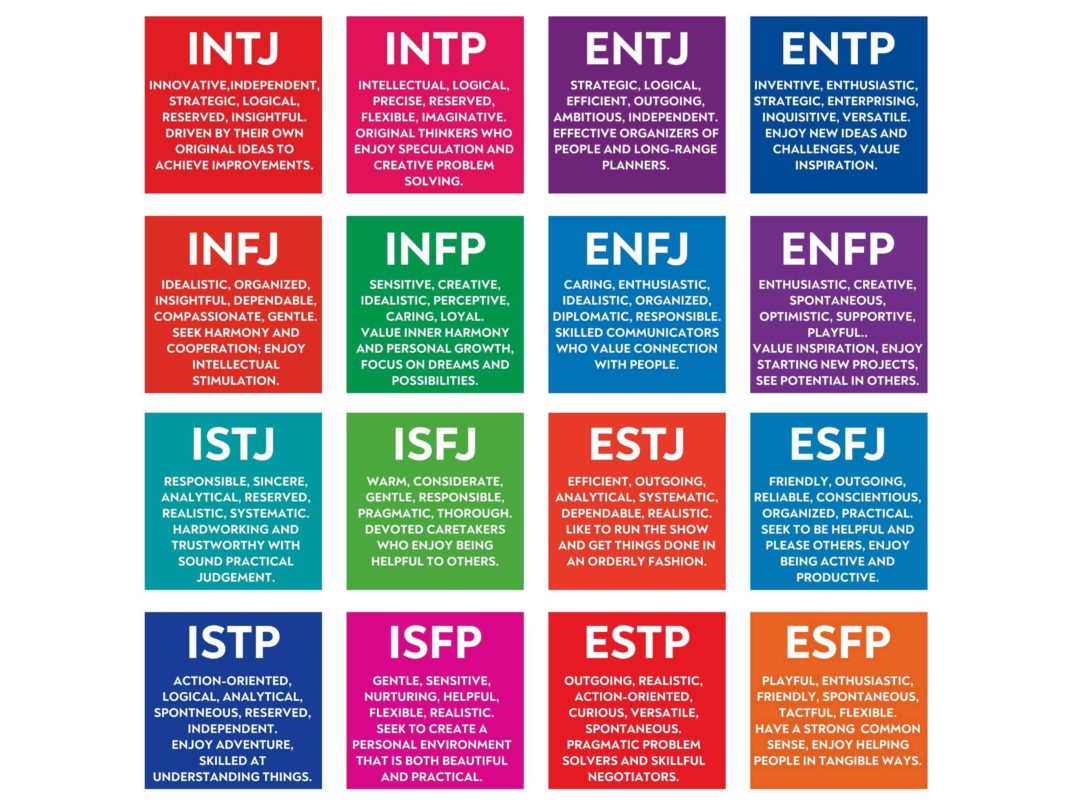
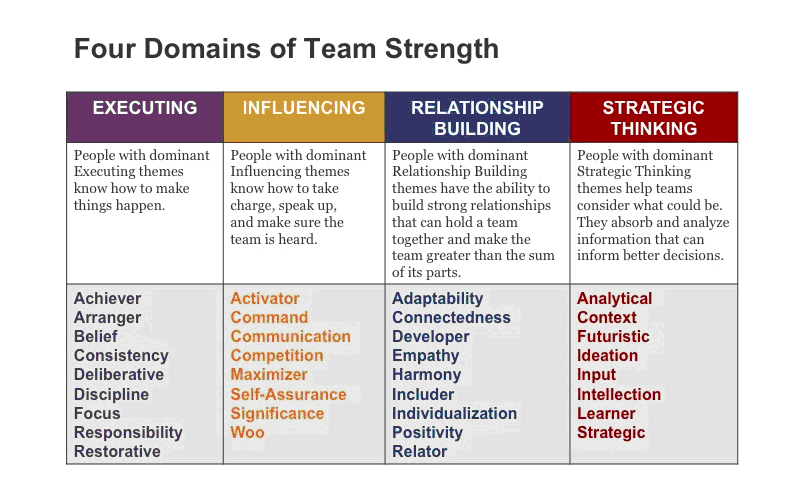 Discover Your Superpowers: CliftonStrengths
Discover Your Superpowers: CliftonStrengths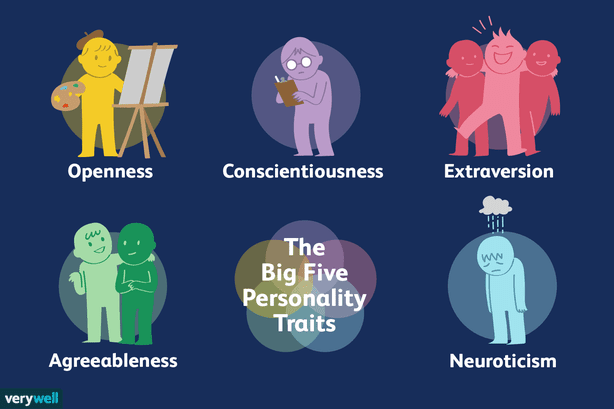
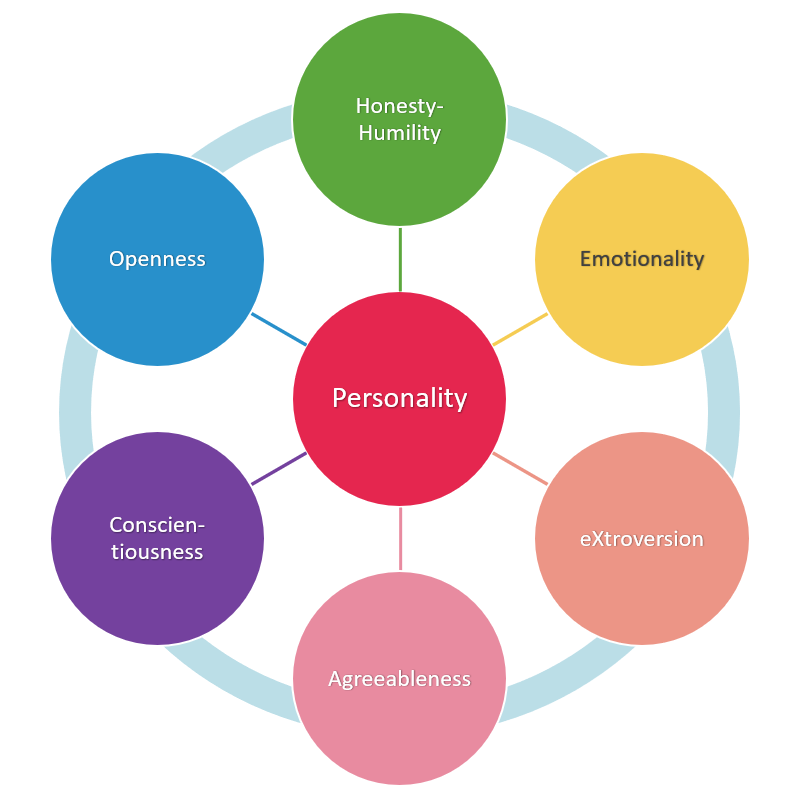 Discover Your Personal Dimensions: HEXACO
Discover Your Personal Dimensions: HEXACO
